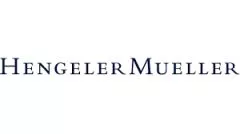Late summer has been anything but calm this year in Brussels and Luxembourg. The ECJ has delivered three landmark judgements on Illumina/Grail, Apple, and Google Shopping. Mario Draghi unveiled his much-anticipated report on competitiveness. Oh, and President Von der Leyen introduced her new College of Commissioners. With these major developments, we're set for an eventful fall. But don't worry, we've got you covered: In our annual Rentrée issue, we have summarized all you need to know for the coming months in the fields of merger control, antitrust, state aid, and foreign subsidies. But let's start with the (designated) new chief of DG COMP.
First Things First: There's a New Commissioner (-Designated) in Town
On 17 September, Commission President Von der Leyen appointed Spanish Socialist Teresa Ribera, currently the country's Ecological Transition Minister, as the new Commissioner for Competition and chief of DG Comp. Upon the appointment, President Von der Leyen also published a Mission Letter in which she outlined (on a very high level) what challenges she expects Ribera to address. These include a review of the Horizontal Merger Control Guidelines, a simplification of State aid rules and a new State aid framework for renewable energy and industrial decarbonization, a "vigorous" enforcement of the FSR, and addressing the "risks of killer acquisitions". It will be particularly interesting to see how Ribera will respond to the proposals set out by Mario Draghi in his report on competitiveness (see below for further details).
On another note, Henna Virkkunen has been appointed Executive Vice President for Tech Sovereignty, Security and Democracy and will be – subject to Parliament's approval – in charge of DG CONNECT, and thus (co-)responsible for the enforcement of the DMA and the DSA.
When? Confirmation hearings are scheduled for 4 to 12 November, which means that the new Commission could take office on 1 December. That is, if Parliament gives them the green light by then...
MERGER CONTROL
Illumina/Grail Is Over – What's Next?
In the final days of summer, the ECJ brought an end to the Illumina/Grail battle. As you will recall, the Commission reviewed, and eventually blocked, the merger (and imposed a record-setting gun-jumping fine) based on an Article 22 EUMR referral request by France, later joined by other Member States, even though they were not competent to examine the merger themselves. While the GC had upheld the Commission's view in 2022, the ECJ now sided with the companies (Joined Cases C‑611/22 P and C‑625/22 P), holding that Member States are unable to make referral requests if their own national law doesn't allow them to review the concentration in the first place.
Shortly after the ruling, outgoing Commissioner Vestager reiterated the need to review "those few cases where a deal would have an impact in Europe" but does not meet the EUMR thresholds. How exactly the Commission will catch them will be one of the most interesting talks of the town in the months ahead. The short-term answer at least may be via Article 22 referrals from Member States based on novel call-in powers: Several states have recently adopted provisions allowing them to review (or refer) transactions not meeting their regular thresholds, and this number may grow (the French competition authority said after the Illumina/Grail ruling that they would consider a revision of their merger control instruments). The discussions around reviewing mergers under Article 102 TFEU may also gain new momentum. And finally, there is the option of amending the EU's thresholds. It will be interesting to hear the new Commissioner's stance on this issue...stay tuned!
When? Unclear, but swift action at national level likely. Member States (e.g., France) already said they would introduce call-in rights. EUMR amendments will take much longer.
Vivendi/Lagardère, Season Two – More Clarity on Information Requests?
Shortly after clearing the merger of Vivendi and Lagardère, two French media companies, the Commission opened formal gun-jumping proceedings to assess whether the parties had breached a standstill obligation. However, the case's focus quickly turned to the limits of information requests. Lagardère and Vivendi challenged an RFI from the Commission, stating, inter alia, that it disproportionately covered documents "with no connection" to the investigation's purpose and that some of the information concerned private data (Cases C-90/24 P(R), C-89/24 P(R)). While the GC had rejected their pleas, they scored a partial win before the ECJ, which cited the potential of serious and irreparable harm if they were to provide the documents, and referred the case back to the GC. The GC then ordered a stay of execution as far as the RFI concerned private data. The parties again appealed this decision, seeking a more comprehensive suspension (Cases C-470/24 P(R) & C-569/24 P(R)). The ECJ, in August, rejected Vivendi's appeal; Lagardère's challenge is still ongoing.
When? ECJ likely to rule in the coming weeks (preliminary proceedings); main proceedings will take more time. Ultimately, the Commission may need to adopt new rules to protect private data in RFIs and during dawn raids.
The Draghi Report Is Out – What's In For Merger Control (And Beyond)?
In early September, 'Super Mario' Draghi presented his long-awaited report on the EU's competitiveness, full of ambitious suggestions, many of which could significantly change EU competition law. What's in for merger control? In an attempt to create "European champions", Draghi calls for the facilitation of cross-border mergers in the telecoms sector by assessing deals on the EU level. Draghi also proposes strengthening the "innovation defence", allowing parties to justify a merger by proving that it will lead to more innovation and investment. The report also suggests that remedies should focus on commitments to invest according to detailed time schedules or access to data or platforms, rather than divestments. .
Worth mentioning are also a few proposals beyond the area of merger control: The report calls for a "New Competition Tool" as a market investigation instrument to address "structural" problems in four areas: tacit collusion; markets where consumer protection is likely necessary; markets where economic resilience is weak; and unsuccessful past remedies. The report also suggests some simplification by expanding initiatives like the 2023 Merger Simplification Package to other areas of competition law.
When? EU leaders plan to discuss Draghi's report at their summit in mid-October. More debates will follow before we know which proposals made the cut.
Not Everything Old Is Gold I - A Makeover for the Article 102 Guidelines
In the middle of summer, the Commission launched a public consultation on its draft Article 102 Guidelines on exclusionary abuse of dominance. In particular, the draft Guidelines suggest that the Commission may, in a sense, move away from the effects-based approach, as certain types of conduct are, according to the draft, "presumed to lead to exclusionary effects". While the Guidelines seek to simply reflect the case-law, expect further discussions whether the Commission got it right, the final word is yet to come.
When? Interested parties can comment on the draft until 31 October. The Commission will then publish an evaluation of the feedback, possibly next year, before deciding on the next steps.
Not Everything Old Is Gold II – Updating the EU's Procedural Rules
Another consultation just ended: In early September, the Commission published the findings of the evaluation of the procedural framework for the application of EU competition rules, laid down in Regulations 1/2003 and 773/2004. Given the Commission's initial findings, chances are high we will see some changes: In particular, the evaluation showed a need to improve cooperation within the ECN in order to avoid parallel investigations; the findings also identify several measures to accelerate investigation procedures. As an example, the Commission mentions the right to access non-confidential versions of the investigative files, which stems from a time when investigations were smaller in size.
When? The Commission may outline the next steps before Christmas.
Delivery Hero / Glovo: Commission to Take on No-Poach Agreements
It is the Commission's first formal labor market scrutiny of this kind: Since early July, the food delivery apps Delivery Hero and Glovo are under a formal investigation over suspicions of no-poach agreements. Investigators will examine if the companies allocated geographic markets, exchanged commercially sensitive information, and agreed not to poach workers, prior to Delivery Hero taking over Glovo in 2022. The investigation might ultimately lead to a €400 million fine.
When? Further developments might follow in the next months. More enforcement action at Member State level.
STATE AID
The New Commissioner's (Possible) State Aid Priorities
Under the (likely) new Commissioner Teresa Ribera, the EU's State aid policy will very likely focus on further facilitating the green transition and supporting the European cleantech industry. Ribera will have a central role in shaping State aid frameworks to accelerate investment in green technologies. Her responsibilities include guiding the approval of subsidies for strategic sectors through Important Projects of Common European Interest (IPCEIs) and ensuring that State aid rules align with the EU's broader climate goals.
At the same time, one key priority is reforming competition rules to support European industries while balancing the demands – and also capabilities – of larger and smaller Member States. This involves managing subsidies to ensure fairness and competitiveness within the EU, particularly as European companies face increasing external challenges from global competitors like the U.S. and China. So, a potential revision of the State aid rules will very likely be flanked by the latest FSR developments (see below). Ribera's portfolio should also involve overseeing investments in green industrial projects through the Just Transition Fund and addressing energy costs to protect European manufacturing's competitiveness.
When? Once the designated Commissioner Ribera has installed herself successfully in her new mandate, we expect to see the first major State aid projects at the beginning of 2025.
Nuclear Energy, Racetracks, and Semiconductors – Ongoing Commission State Aid Investigations
Besides shaping new rules, also several significant State aid investigations by the Commission are currently ongoing.
One prominent investigation involves Belgium's plans to extend the operational life of two nuclear reactors for another 10 years. The Belgian government, in partnership with Engie, proposed various financial support mechanisms, including shareholder loans and a €15 billion payment to cover nuclear waste disposal costs. The Commission is scrutinizing whether this aid is compatible with EU rules, particularly concerning a contract-for-difference (CfD) agreement designed to manage energy market risks.
Another major investigation concerns the sale of the Nürburgring racetrack in Germany to Capricorn. The Commission is exploring whether the State aid involved in this sale complied with EU competition rules. Following the ECJ ruling, the Commission is set to deepen its investigation with specific focus on three key issues: (i) the imputability to the German State: The Commission will assess whether the decision to sell the Nürburgring during insolvency proceedings can be attributed to the German State, meaning whether the state influenced or had control over the sale process; (ii) the tender process and financing: The Commission will examine whether aspects of the tender process were flawed, particularly regarding Capricorn's financing commitments. If these commitments were non-binding or unclear, it may have compromised the transparency and fairness of the sale, potentially giving Capricorn an undue advantage over other bidders; and last but not least (iii) the post-sale allegations of State aid: the Commission will investigate claims that Capricorn may have received additional State aid after the sale, including through a reduction in the sale price or deferrals of payment.
When? A decision in both cases can be expected normally within 18 months after opening of the in-depth investigation, possibly in Q1/2025.
FOREIGN SUBSIDIES REGULATION
First Court Case: Extraterritorial Application of the FSR – and other EU Regulations? During the summer, the GC had to decide on the first court case with an FSR angle. Its Nuctech v Commission decision (T-284/24) provides important insights into the Commission's assessment under the FSR and the judicial review thereof.
Nuctech, a Chinese security scanner supplier, challenged the Commission's inspection decision into potentially distortive subsidies attributable to China and applied for interim measures. The Commission sought access to email correspondence stored on servers in China. Despite Nuctech's claims that the data and information is not available for EU entities and that providing access might result in a violation of Chinese law, the GC dismissed Nuctech's application. It found that the Commission was empowered to demand disclosure of information held outside the EU, stating in very clear words – some of the arguments brought forward by Nuctech were deemed "extremely laconic" – that Nuctech did not provide sufficient evidence that Chinese law would prevent providing access.
The important takeaway from the GC's ruling – the extraterritorial application of the FSR – may have implications beyond the FSR. The GC confirmed that the Commission has far-reaching investigative powers and can apply its instruments also to obtain information held outside the EU under the condition that the undertaking is conducting activities in the EU. The court emphasized that this power was especially important in the context of assessing the impact of non-EU Member State funding on the internal market.
Under the GC's judgment, companies must identify explicit, well-documented and sufficient evidence of the laws or other measures that would prevent them from complying with a data request. A rejection may be successful if there is sufficient evidence that foreign law, in particular criminal law, would otherwise be infringed. Moreover, a company needs to demonstrate that data and information is inaccessible for EU subsidiaries as a result of its internal group organization. Time will tell whether we will see the Commission using its (extraterritorial) investigative powers also in merger control, antitrust and abuse of dominance proceedings.
When? The main proceedings are still pending before the GC. Its judgment could arrive in the course of next year.
The Commission's Attempt to Provide More Clarity on the FSR
On 26 July 2024, the Commission published a Staff Working Document on the FSR, which discusses in a Q&A-style some core elements of the substantive assessment under the FSR. It addresses the concept of distortion and the substantive balancing test.
The Commission clarifies that a foreign subsidy must – actually or potentially – distort the internal market through the concentration to be considered distortive. Contrary to State aid rules, it cannot be presumed that a foreign subsidy is distortive simply because the recipient is involved in an economic activity in a sector that has been liberalized within the internal market. Under the balancing test, the beneficial impact on the internal market is weighed against the distortion in the internal market caused by a foreign subsidy. Foreign subsidies falling within the most likely distortive category under Article 5 FSR are less likely to be offset by positive effects.
When? According to Art. 46 FSR, the Commission will provide further guidance on the implementation of specific FSR provisions by 12 January 2026. Until then, the application will be further developed by the Commission's and the courts' decisions.
The content of this article is intended to provide a general guide to the subject matter. Specialist advice should be sought about your specific circumstances.






